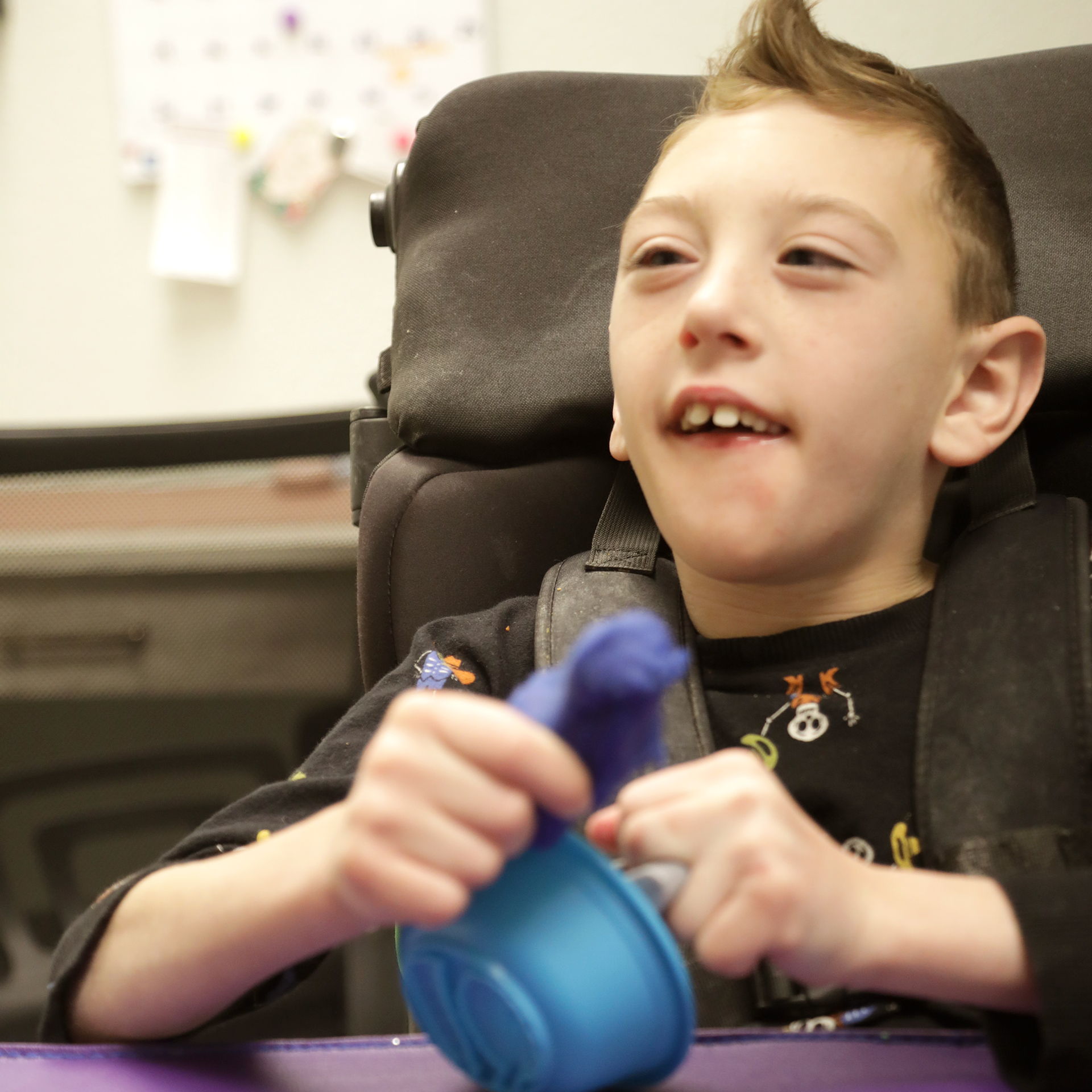BCBA Programs & Schools


Understanding BCBA Education and Accreditation
Becoming a Board Certified Behavior Analyst (BCBA) involves a structured educational pathway supported by accredited programs that meet stringent standards. The journey integrates coursework, supervised fieldwork, and certification exams. This article explores the landscape of BCBA programs and schools, focusing on accreditation, curriculum, online options, and career prospects, providing comprehensive guidance for prospective students.
The Role of Accreditation in BCBA Education

Why is ABAI accreditation important for BCBA programs?
ABAI accreditation plays a crucial role in ensuring the quality and integrity of educational programs in behavior analysis. Programs that earn ABAI accreditation have undergone a rigorous review process, which verifies that they meet the association's high standards. These standards include comprehensive coursework, supervision, and practicum requirements essential for preparing students to become competent BCBAs.
Accredited programs are designed to produce graduates who are knowledgeable in the science of behavior and competent in applying behavioral principles. This accreditation status serves as a mark of credibility, indicating that the program adheres to best practices in education and aligns with professional standards.
How does accreditation help in ensuring certification readiness?
For aspiring BCBAs, attending an ABAI-accredited program is often a part of meeting the eligibility criteria for certification through the Behavior Analyst Certification Board (BACB). Starting January 1, 2022, ABAI-accredited programs satisfy the BACB’s coursework and degree requirements, making graduates eligible to apply for the BCBA or BCaBA certification exams.
Accreditation guarantees that the coursework is recognized and accepted, and that students have completed the necessary supervised fieldwork. This seamless transition from education to certification is vital in establishing a clear pathway for students pursuing a professional career in behavior analysis.
How can you verify if a program is ABAI accredited?
To verify if a program holds ABAI accreditation, prospective students can visit the ABAI official website. The site provides an updated list of accredited programs across multiple degree levels, including bachelor’s, master’s, and doctoral programs. The list details each program’s accreditation status, recognition period, and review history.
Choosing an ABAI-accredited program not only ensures compliance with certification criteria but also offers assurance of quality education. This helps students pursue their career goals confidently, knowing their program has been thoroughly reviewed and recognized by a leading authority in behavior analysis.
| Degree Level | Example Institutions | Accreditation Status | Additional Notes |
|---|---|---|---|
| Bachelor’s | Florida Tech, Ohio State University | Accredited | Online and on-campus options |
| Master’s | University of Kansas, Florida Institute of Technology | Accredited | Includes coursework approved by BACB |
| Doctoral | Columbia University | Accredited | Advanced research opportunities |
Understanding the significance of accreditation ensures students select the most credible and supportive programs to achieve their goals in behavior analysis.
Educational Pathways and Program Types in Behavior Analysis

What are the educational requirements to become a BCBA?
To pursue a career as a Board Certified Behavior Analyst (BCBA), candidates must meet specific educational and practical experience standards. First, an individual must obtain an undergraduate degree from an accredited institution, ideally in fields like psychology, education, or a related area.
Subsequently, candidates need to enroll in a graduate program in behavior analysis that meets the standards set by the Behavior Analyst Certification Board (BACB). These programs can be accredited by the Association for Behavior Analysis International (ABAI) or include a verified course sequence approved by ABAI, encompassing roughly 315 hours of coursework.
Core coursework involves topics such as ethics, behavior analysis principles, measurement, and research methodologies. After completing coursework, candidates are required to accumulate between 1,500 to 2,000 hours of supervised practical experience under a qualified BCBA supervisor, as mandated by the BACB.
Once the coursework and supervised hours are completed, candidates can apply to take the BCBA certification exam. This standardized exam consists of 160 questions and lasts four hours, assessing knowledge across various areas of behavior analysis.
Achieving certification also involves maintaining professional standards through ongoing education and recertification every two years. In some states, additional licensure may be necessary for practice.
Reputable Programs Offering ABA Education
Many reputable universities worldwide offer ABA programs aligned with these requirements. For instance, Florida Institute of Technology, Ohio State University, and Columbia University provide undergraduate, master's, and doctoral degrees. Additionally, online options such as the ABAI-accredited online Master’s Program in Behavior Analysis Professional Practice are available, providing flexible pathways for working professionals.
These programs are specifically designed to produce competent behavior analysts, ready to work in clinical settings, schools, or research. They include coursework, practical training, and internship opportunities tailored to prepare students for the BCBA exam and future certification.
Examples of Academic Programs
| University | Degree Offered | Location | Program Type | Accreditation Status |
|---|---|---|---|---|
| Florida Tech | B.A. in ABA | Melbourne | Bachelor’s | ABAI Accredited |
| Ohio State University | M.S. in ABA | Ohio | Master’s | ABAI Accredited |
| University of Kansas | Ph.D. in Behavior Analysis | Kansas | Doctoral | ABAI Accredited |
| Columbia University | M.S. & Ph.D. in ABA | New York | Graduate Programs | ABAI Accredited |
| Mercy University | Certificate in ABA | Online | Graduate Certificate | Meets BACB Standards |
Course Standards and Curriculum
Programs must align with the standards for coursework verification established by BACB, including courses in ethics, measurement, assessment, and intervention strategies. These curricula often comply with BACB’s evolving standards, such as those set for the upcoming 2027 coursework requirements.
In summary, aspiring behavior analysts should select accredited programs that meet the coursework and experiential criteria needed to sit for the BCBA examination. These pathways ensure the educational foundation and practical skills necessary for effective practice and certification in the field of behavior analysis.
Online vs. Campus-Based BCBA Programs

What online BCBA programs are available and how do they compare to campus-based options?
Online BCBA programs, such as Purdue Global University’s Master of Science in Applied Behavior Analysis and Arizona State University’s graduate certificate, provide flexible learning environments tailored for working professionals or students who prefer remote studies. These programs typically include comprehensive coursework in ethics, assessment, intervention strategies, and core principles of behavior analysis.
One of the advantages of online programs is their ability to reach students regardless of geographical location, offering convenience without compromising educational quality. Many of these programs are verified by the Association for Behavior Analysis International (ABAI), ensuring they meet rigorous standards and align with the Behavior Analyst Certification Board’s (BACB) requirements. Supervised fieldwork, an essential component for BCBA certification, is incorporated through practicum placements that can often be arranged locally or remotely.
Compared to traditional on-campus programs, online courses offer similar academic standards but with added flexibility in scheduling. This allows students to balance work, family, and educational commitments more effectively. While campus programs might provide more in-person supervision and networking opportunities, reputable online programs compensate with virtual supervision, interactive modules, and remote practica.
Selecting an accredited, ABAI-verified program that satisfies supervised fieldwork hours is vital for future certification and employment. Such programs enable students to gain the necessary knowledge and practical experience to thrive as behavior analysts, whether they opt for online or campus-based paths.
Comparison Criteria for BCBA Programs and Schools
 When choosing a pathway to become a Board Certified Behavior Analyst (BCBA), evaluating various educational programs is essential. A good starting point is to check whether the program is accredited by the Association for Behavior Analysis International (ABAI). Accreditation ensures the curriculum aligns with industry standards, meeting the coursework requirements necessary for BCBA certification.
When choosing a pathway to become a Board Certified Behavior Analyst (BCBA), evaluating various educational programs is essential. A good starting point is to check whether the program is accredited by the Association for Behavior Analysis International (ABAI). Accreditation ensures the curriculum aligns with industry standards, meeting the coursework requirements necessary for BCBA certification.
Curriculum content and comprehensiveness are vital factors. Top programs typically include coursework on behavior analysis principles, ethical practices, assessment, intervention strategies, and supervised practical experience such as clinical practicums or fieldwork. For example, programs offered by Florida Tech, University of South Florida, and Hunter College include verified coursework sequences that meet the Behavior Analyst Certification Board (BACB) standards.
Regarding admission prerequisites, programs usually require a relevant undergraduate or graduate degree, a specific GPA, and completion of prerequisite coursework. Some programs, like those at the University of South Carolina and Mercy University, also require applicants to arrange supervised fieldwork hours independently or through the program.
Program duration, costs, and available resources vary across institutions. Many master's programs can be completed in about one to two years, with tuition costs depending on whether courses are online or on-campus. For instance, Florida Tech's online master's can be finished in under two years. Resources such as internship opportunities, research labs, and dedicated support services significantly contribute to professional development.
Reputation and faculty expertise are important success metrics. Programs with faculty involved in ABA research, such as those at Ohio State University and Columbia University, tend to offer richer learning environments. Student success rates, like BCBA exam pass rates — some reaching over 78% on the first attempt — provide insight into the effectiveness of the education.
In summary, comparing BCBA programs requires assessing accreditation status, curriculum depth, admission requirements, program length, financial investment, faculty quality, and student outcomes. This comprehensive evaluation allows aspiring behavior analysts to select programs aligned with their career goals and educational needs.
| Aspect | Details | Additional Considerations |
|---|---|---|
| Accreditation | ABAI accreditation, verified coursework sequences | Ensures compliance with certification standards |
| Curriculum | Principles, ethics, assessment, practical hours | Look for programs with verified practicum opportunities |
| Admission | Degree prerequisites, GPA, supervised experience | Some programs require independent arrangement of fieldwork |
| Duration & Costs | 1-2 years, tuition varies, online options available | Consider financial aid and resource support |
| Faculty & Reputation | Active researchers, high exam pass rates | Faculty involvement in ABA research enhances learning |
| Resources & Support | Internship sites, research labs, career services | Accessibility to practicum placements |
Career Opportunities and Industry Outlook for BCBA Graduates

What are the career opportunities and industry prospects for graduates of BCBA programs?
Graduates of BCBA (Board Certified Behavior Analyst) programs are entering a rapidly expanding field with excellent job prospects. The demand for behavior analysts has surged significantly, with enrollment increases of over 58% between 2023 and 2024, reflecting a booming industry.
Behavior analysts are employed across a variety of settings including hospitals, schools, government agencies, nonprofits, and private homes. They work to address behavioral challenges in individuals with autism, developmental disabilities, brain injuries, and other conditions, making a tangible impact in people's lives.
The career path generally requires obtaining a graduate degree, completing supervised fieldwork, and passing the BCBA certification exam. Once certified, professionals command competitive salaries. The average earnings range from approximately $74,000 to over $90,000 annually for top earners, depending on experience and location.
Industry growth is backed by strong job market data. In 2024, there were over 103,000 job postings nationwide for behavior analysts, indicating high demand. The market size is projected to expand further, with many opportunities for career advancement.
Overall, BCBA graduates benefit from a stable, rewarding career with numerous options for employment and specialization. The field offers not only financial stability but also the opportunity to make a meaningful difference in improving individual well-being.
Summary and Future Directions in BCBA Education
The landscape of BCBA programs and schools offers diverse educational pathways, from online certificates to comprehensive degree programs, all aligned with rigorous accreditation standards like those of ABAI. Prospective students should prioritize accredited programs that meet the BACB coursework and experience requirements, facilitating seamless certification. With a continually expanding demand for behavior analysts, graduates find vibrant career opportunities across multiple sectors, underscoring the importance of choosing quality educational programs. As the field grows, ongoing developments in coursework and certification standards promise enhanced training and professional growth for aspiring behavior analysts.
References
- Accredited Programs
- Top 57 Best Schools Offering ABA Bachelor's and BCaBA Courses
- School of Behavior Analysis | Florida Tech
- MS in Psychology: Behavior Analysis
- Online Behavior Analyst Certificate | Florida Tech
- Top 5 Master's in Applied Behavior Analysis in Florida
- Home | Applied Behavior Analysis | University of Miami
Recent articles

Celebrating Small Wins: How Therapy Helps Kids Build Confidence All Year Long
Learn why small wins in therapy matter, how they boost your child’s confidence, and simple ways families can celebrate progress all year long.

Empowering Missoula Children to Grow With Confidence and Connection
Learn how ABA therapy in Missoula helps children build communication, independence, and confidence through personalized, family‑centered support at Advanced Therapy Clinic.

Compassionate Pediatric Therapy in Butte, Montana
A welcoming place where every child’s potential is celebrated

How Pediatric Therapy Helps Kids Thrive across Montana and Wyoming
A supportive guide for families exploring therapy options in Billings, Butte, Missoula or Sheridan.

How to Choose the Right Pediatric Therapy Clinic in Billings, Montana
A Parent‑Friendly Guide To Finding The Best Support For Your Child

Expressive Speech Delay 2-Year-Old
Understanding and Addressing Expressive Speech Delay in Toddlers

